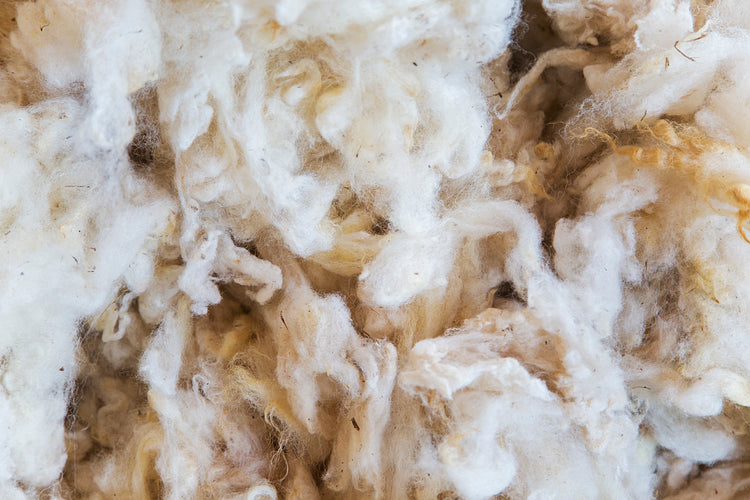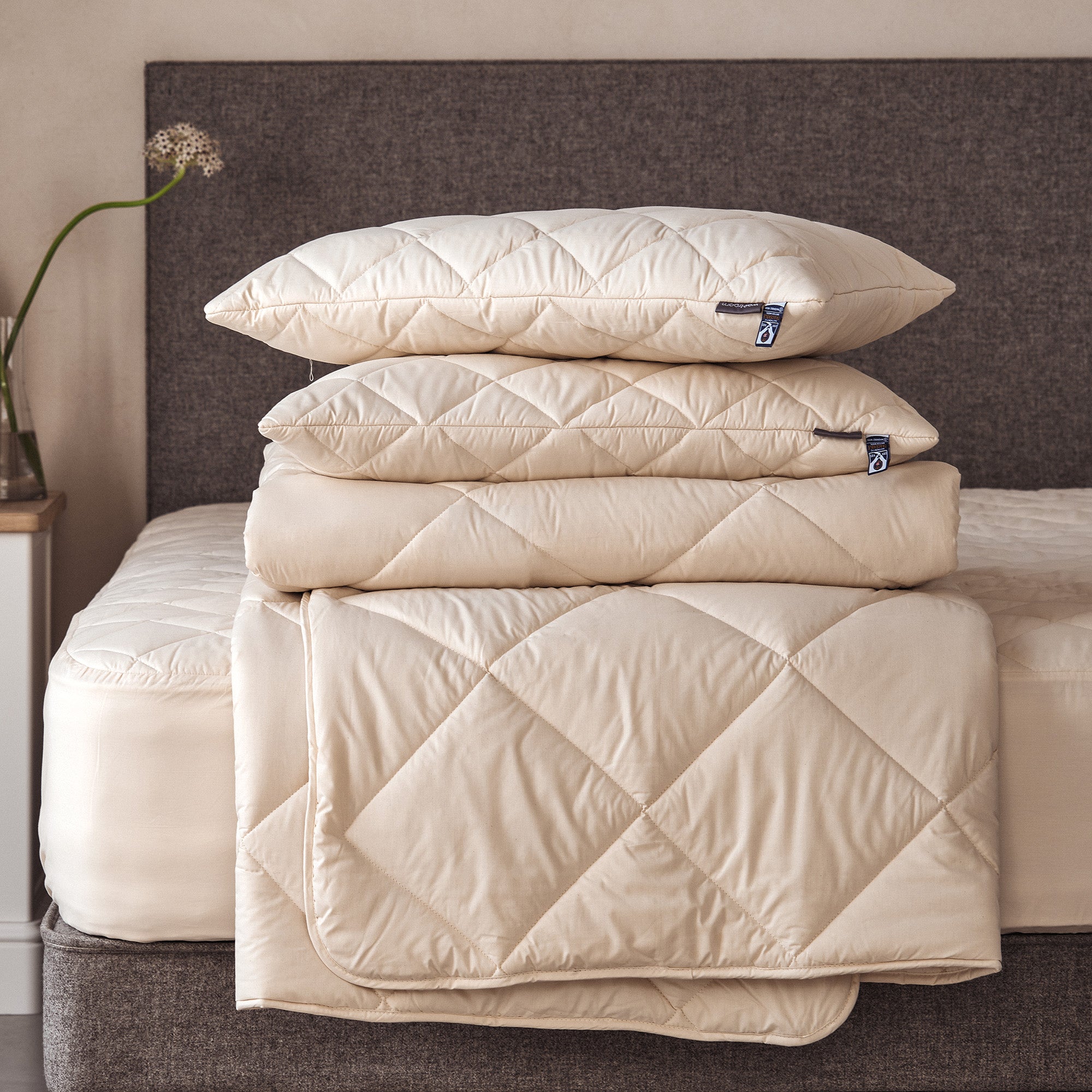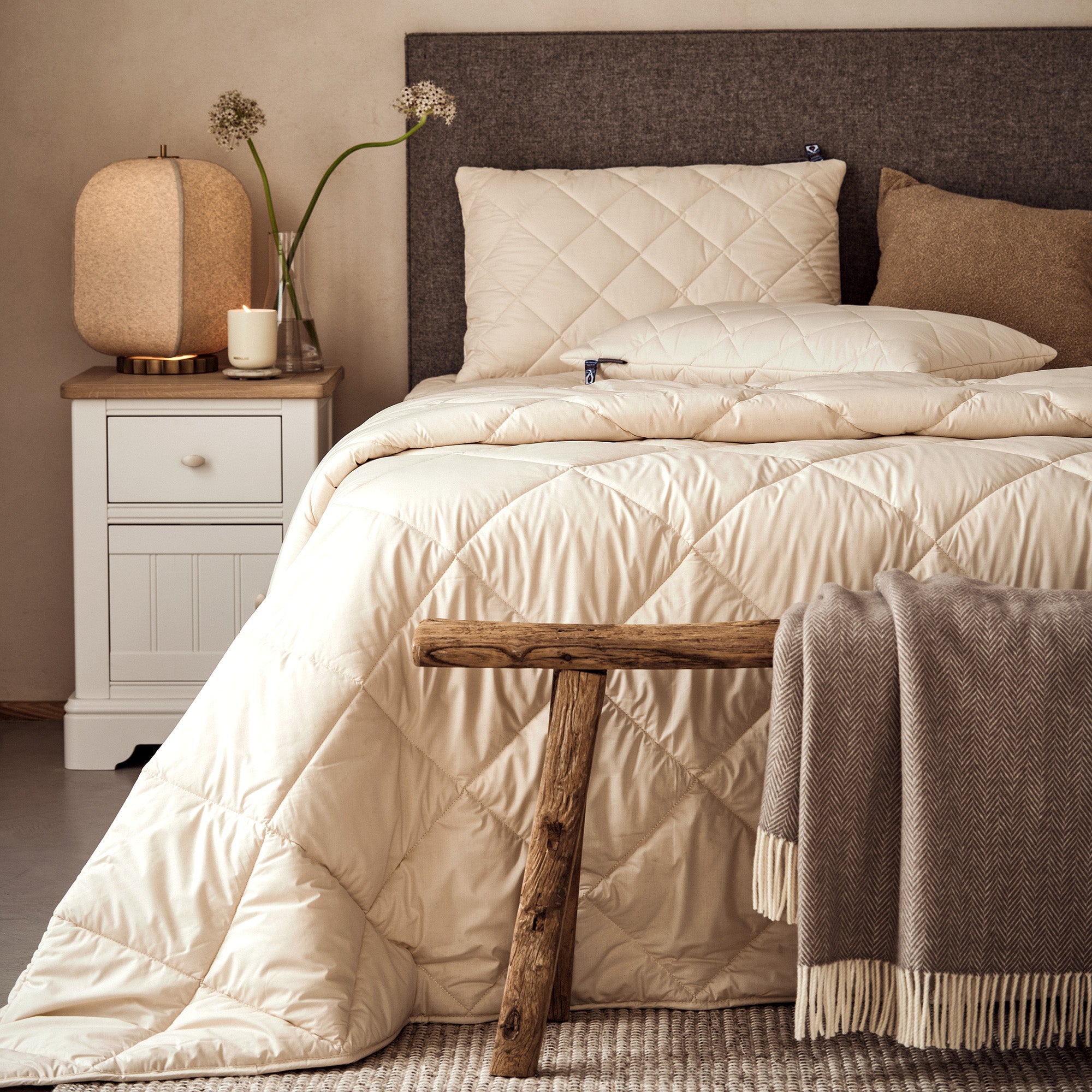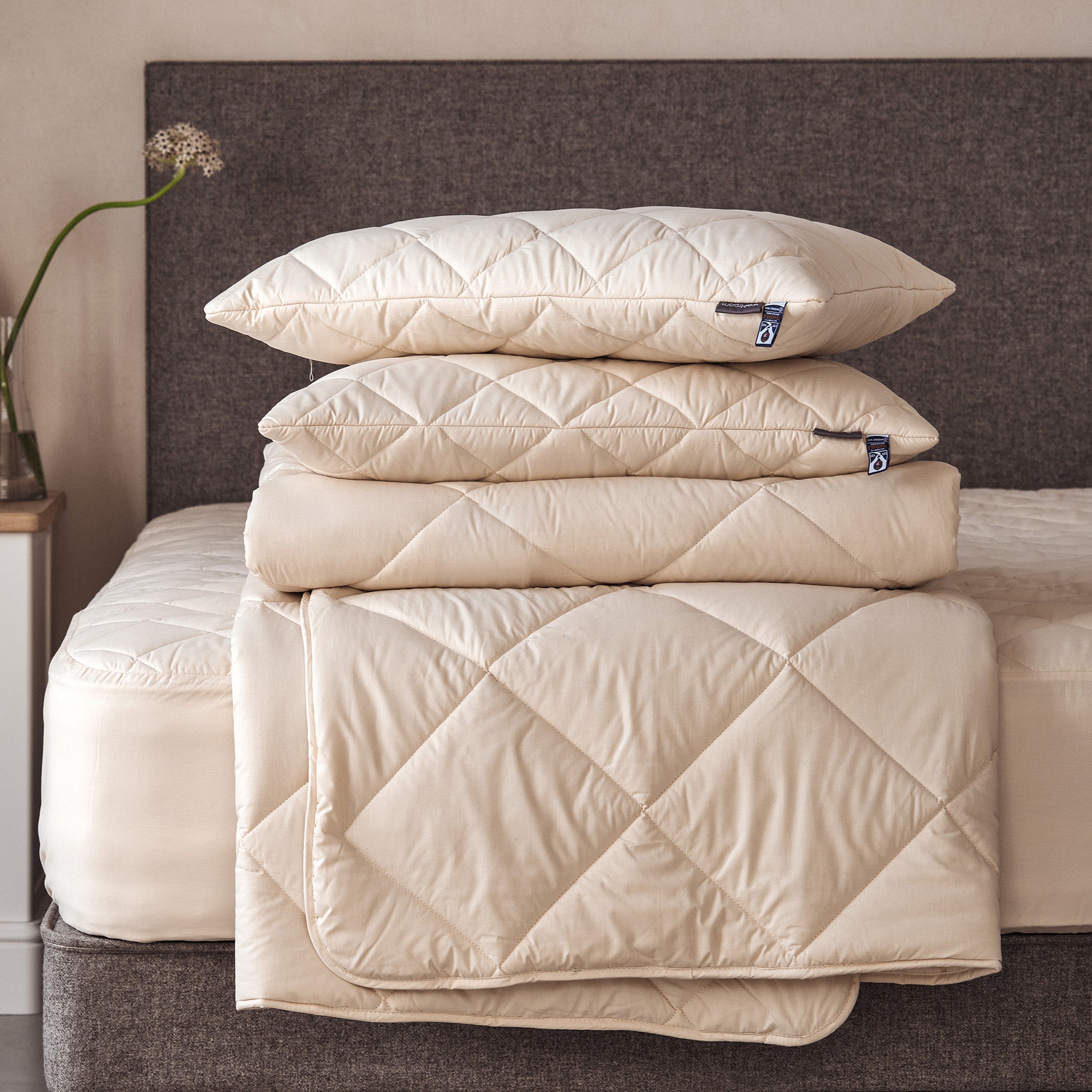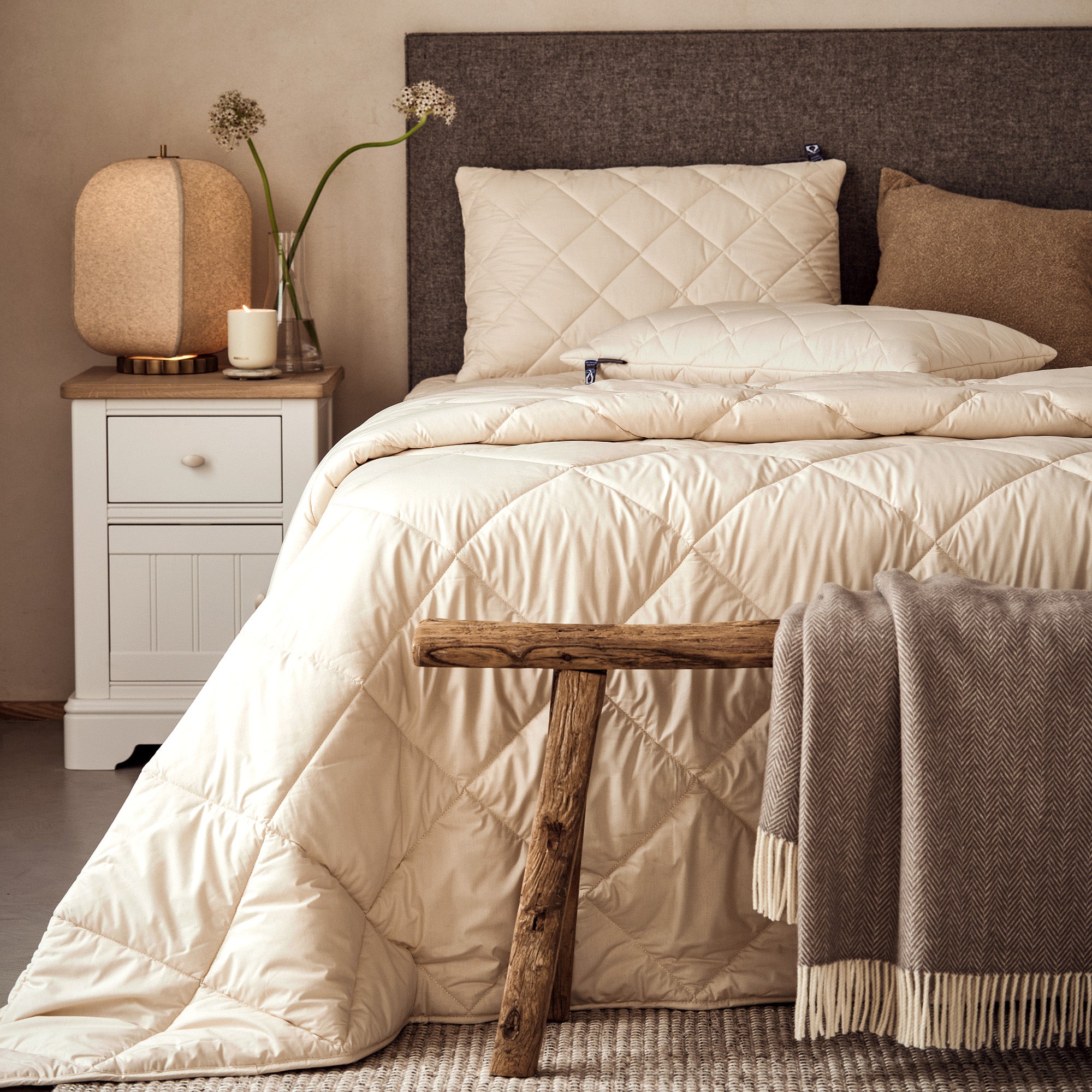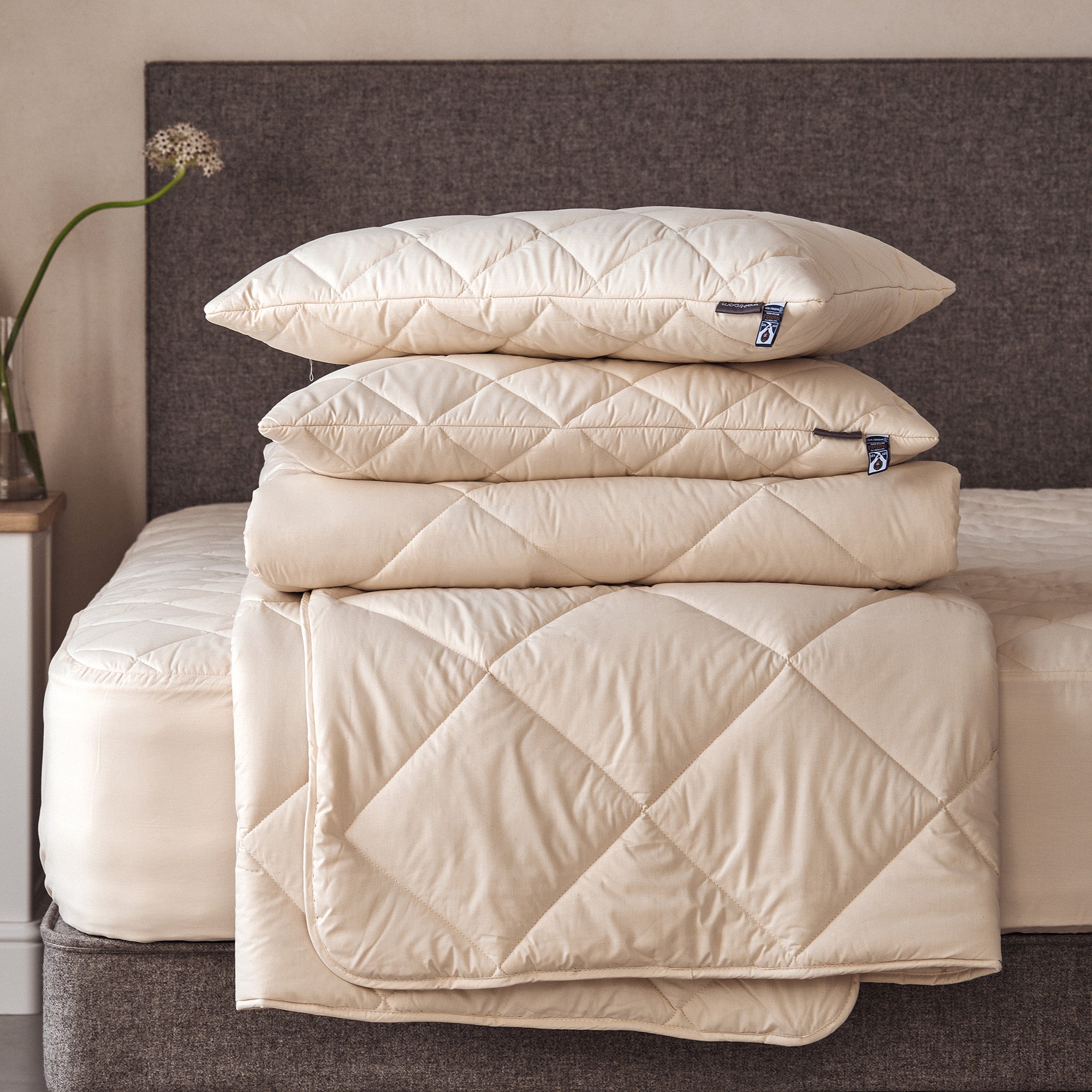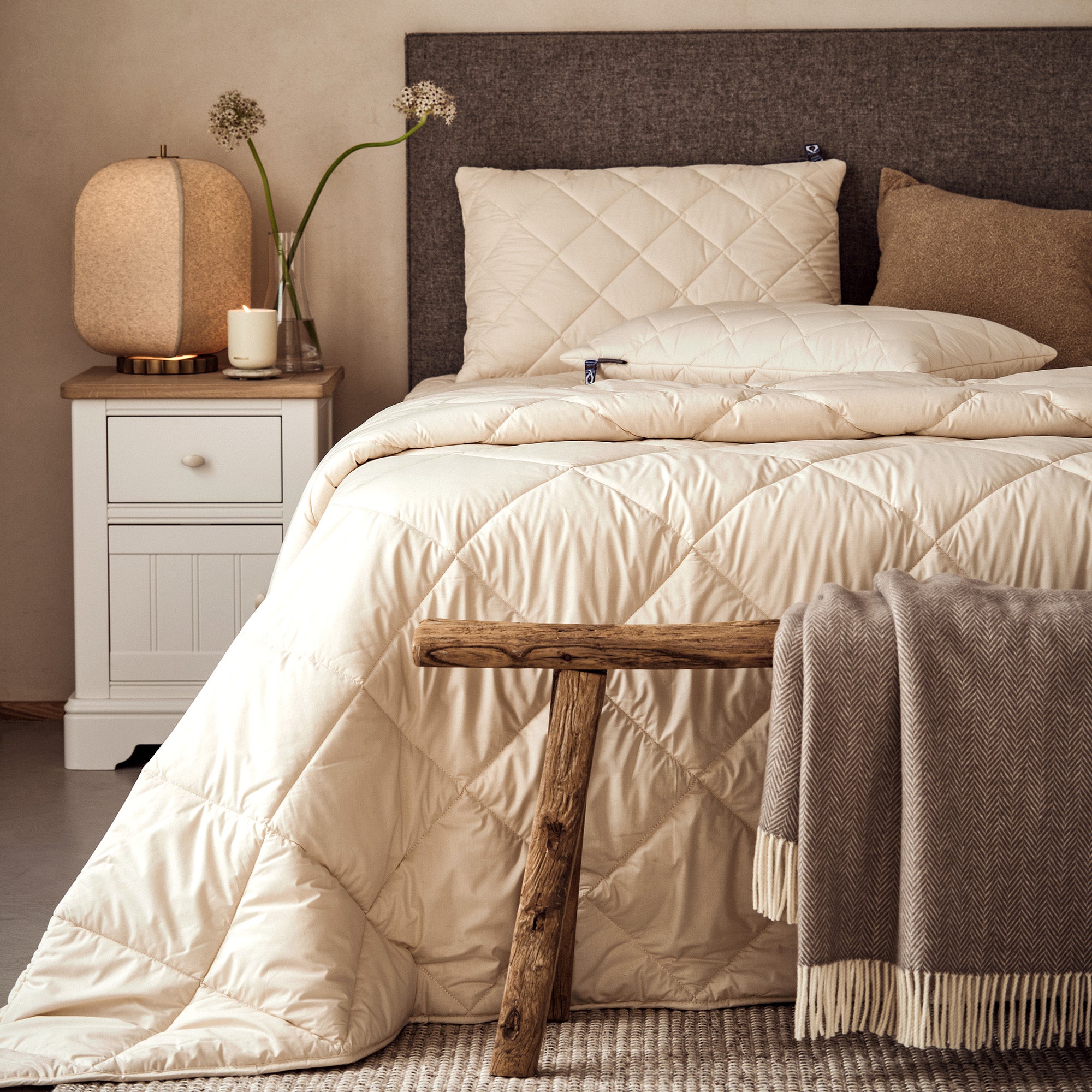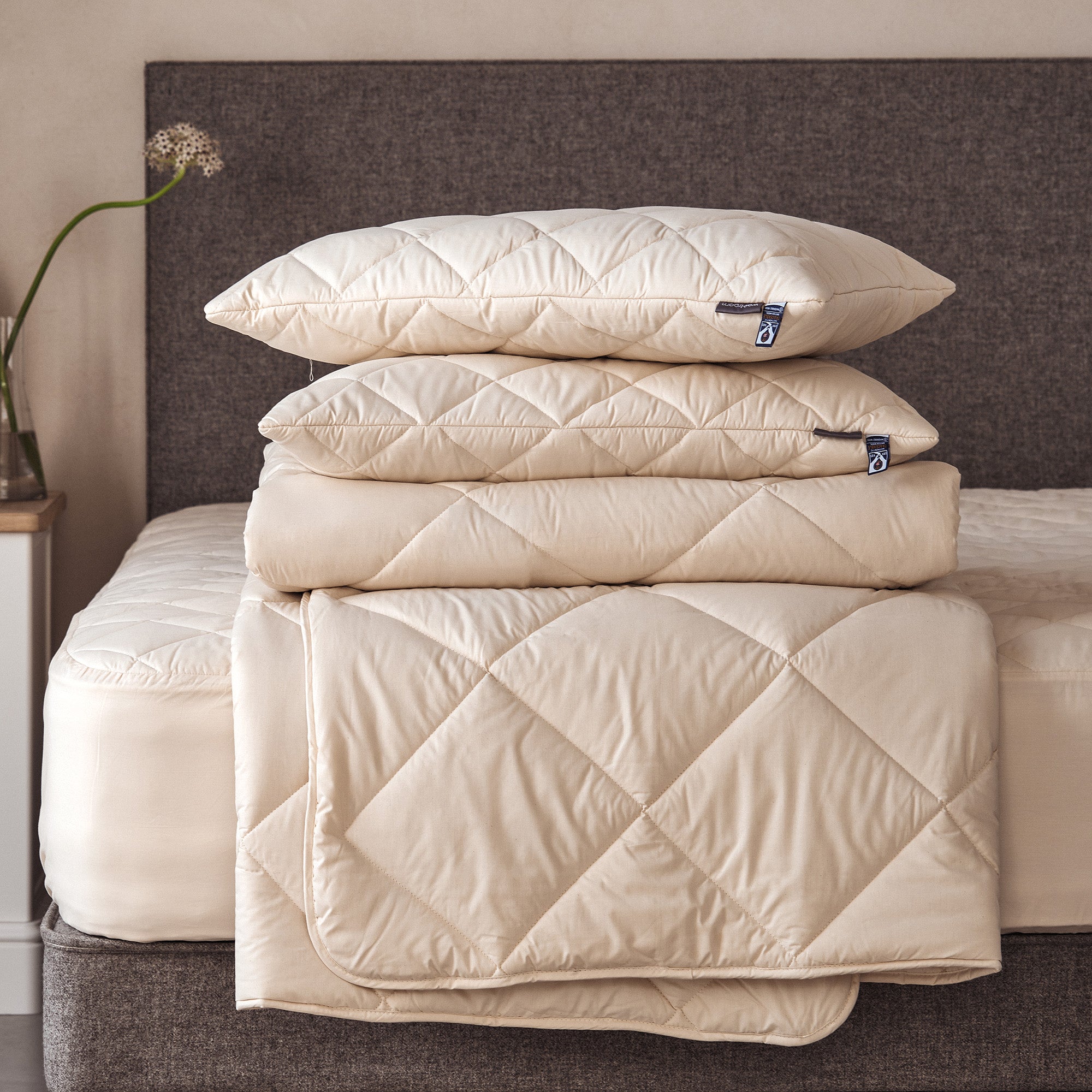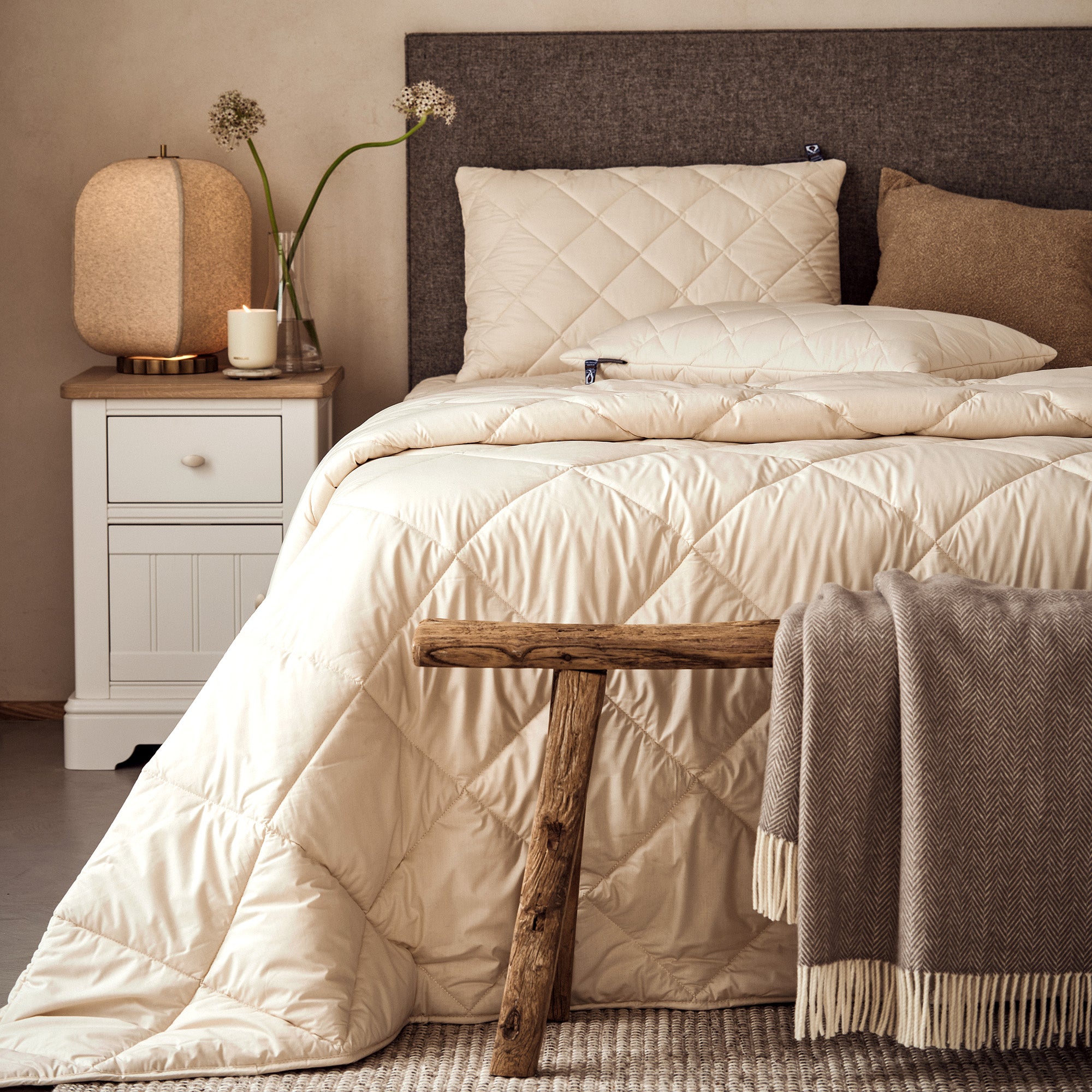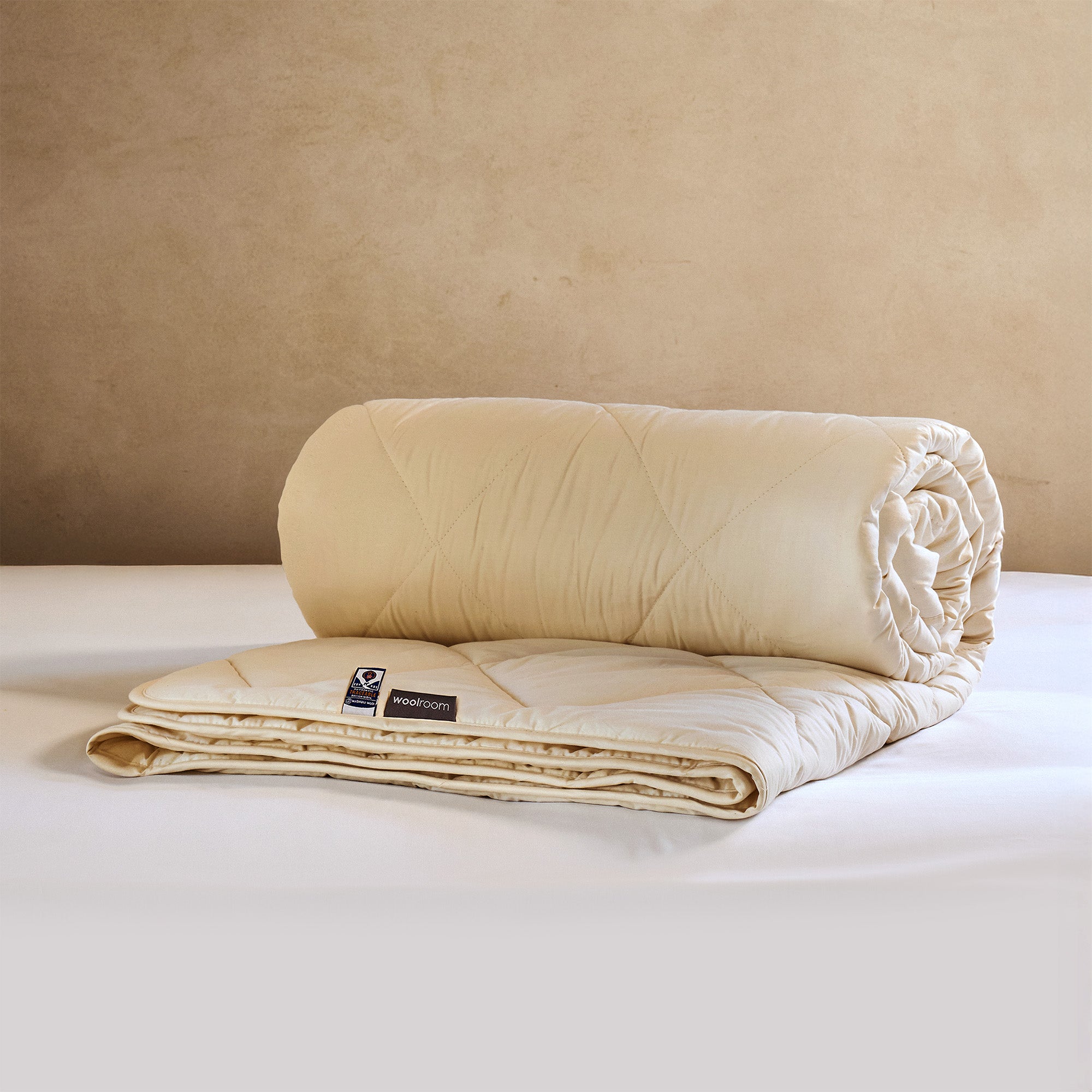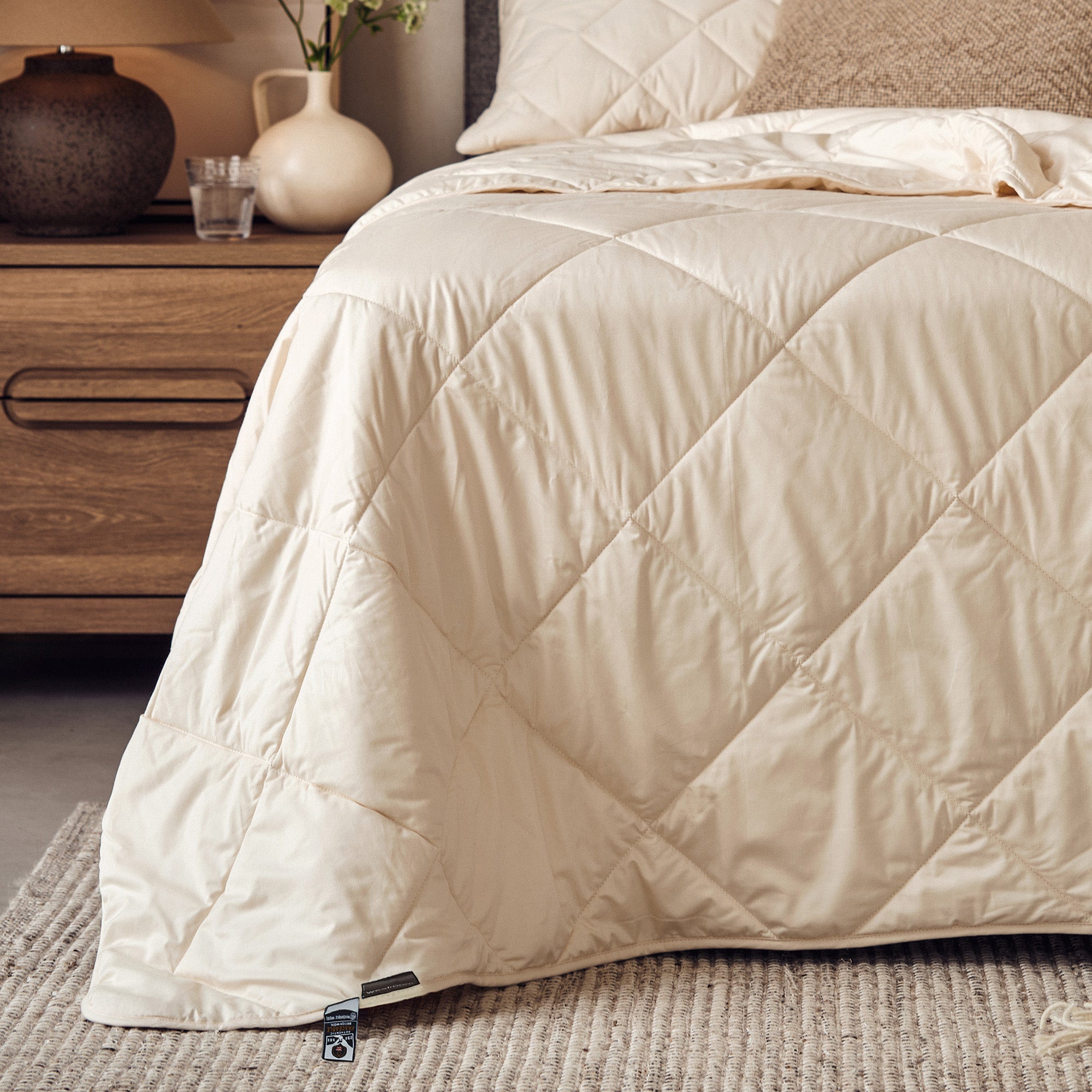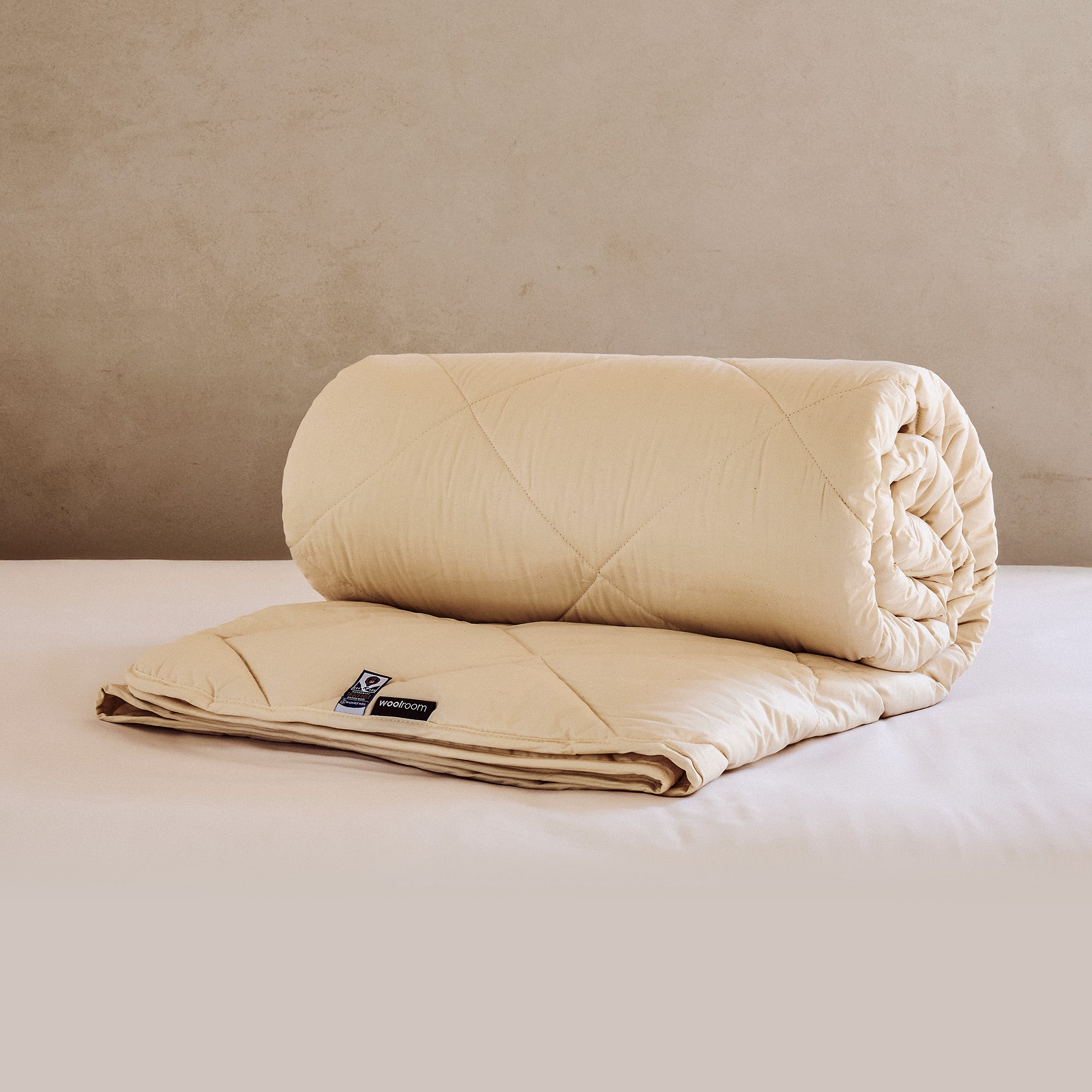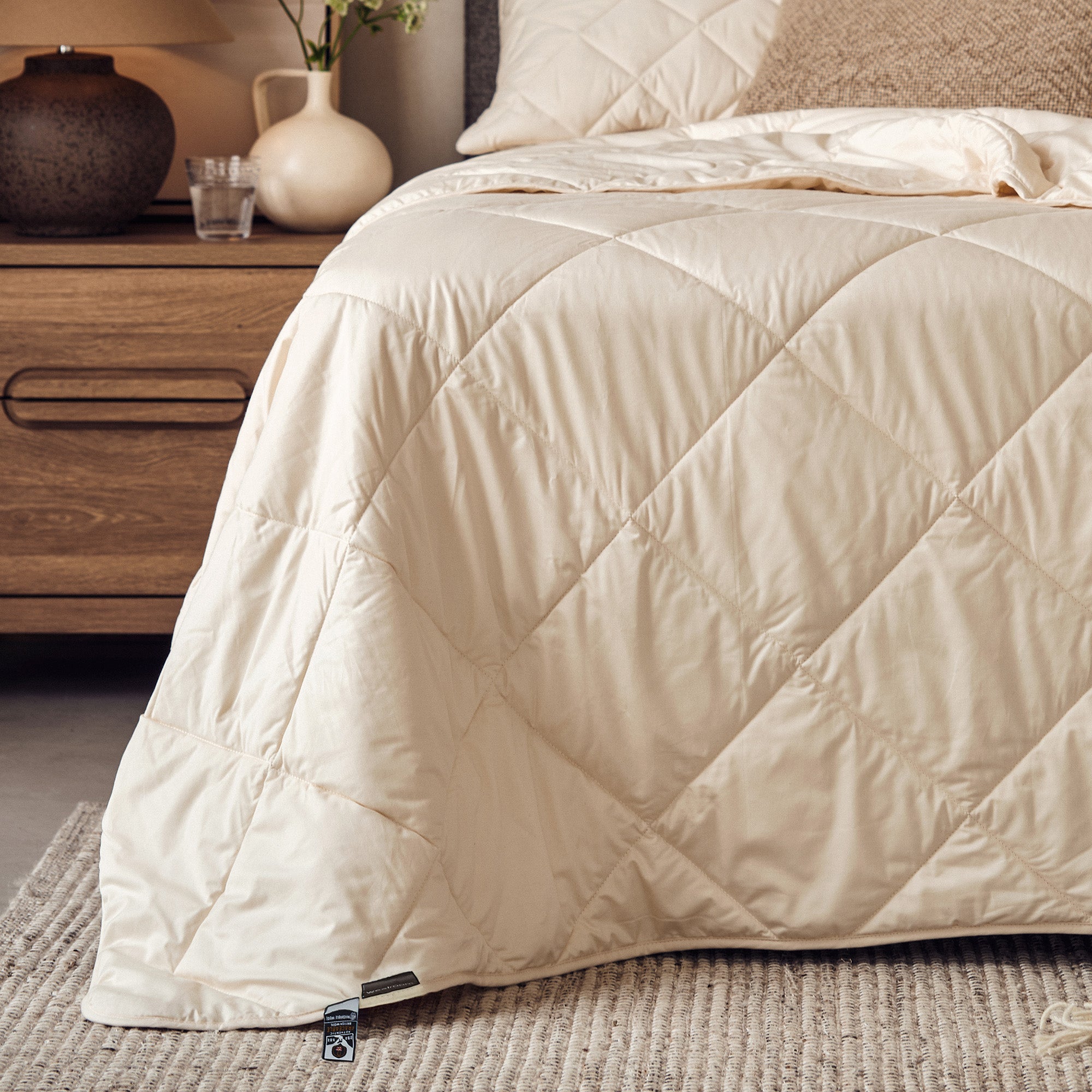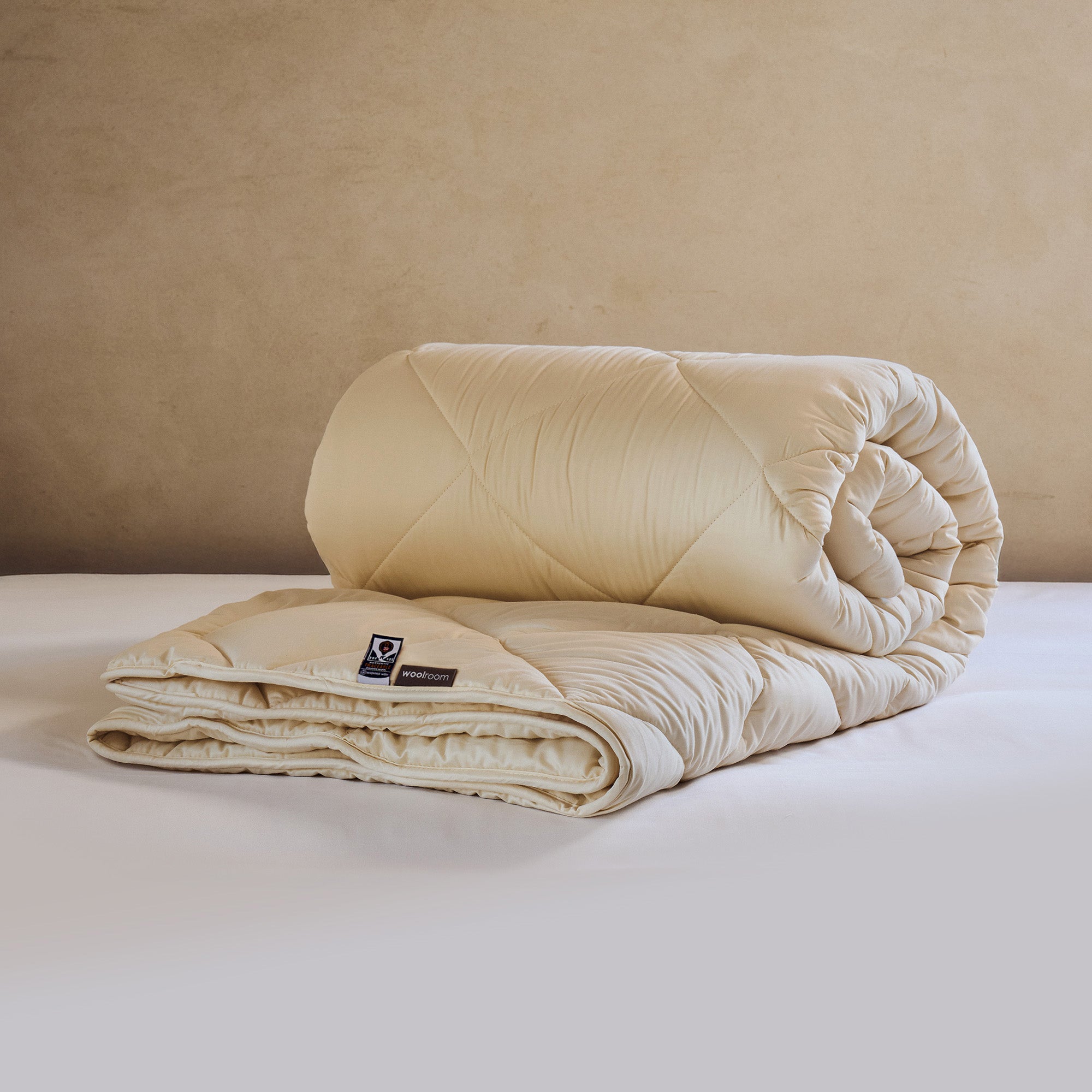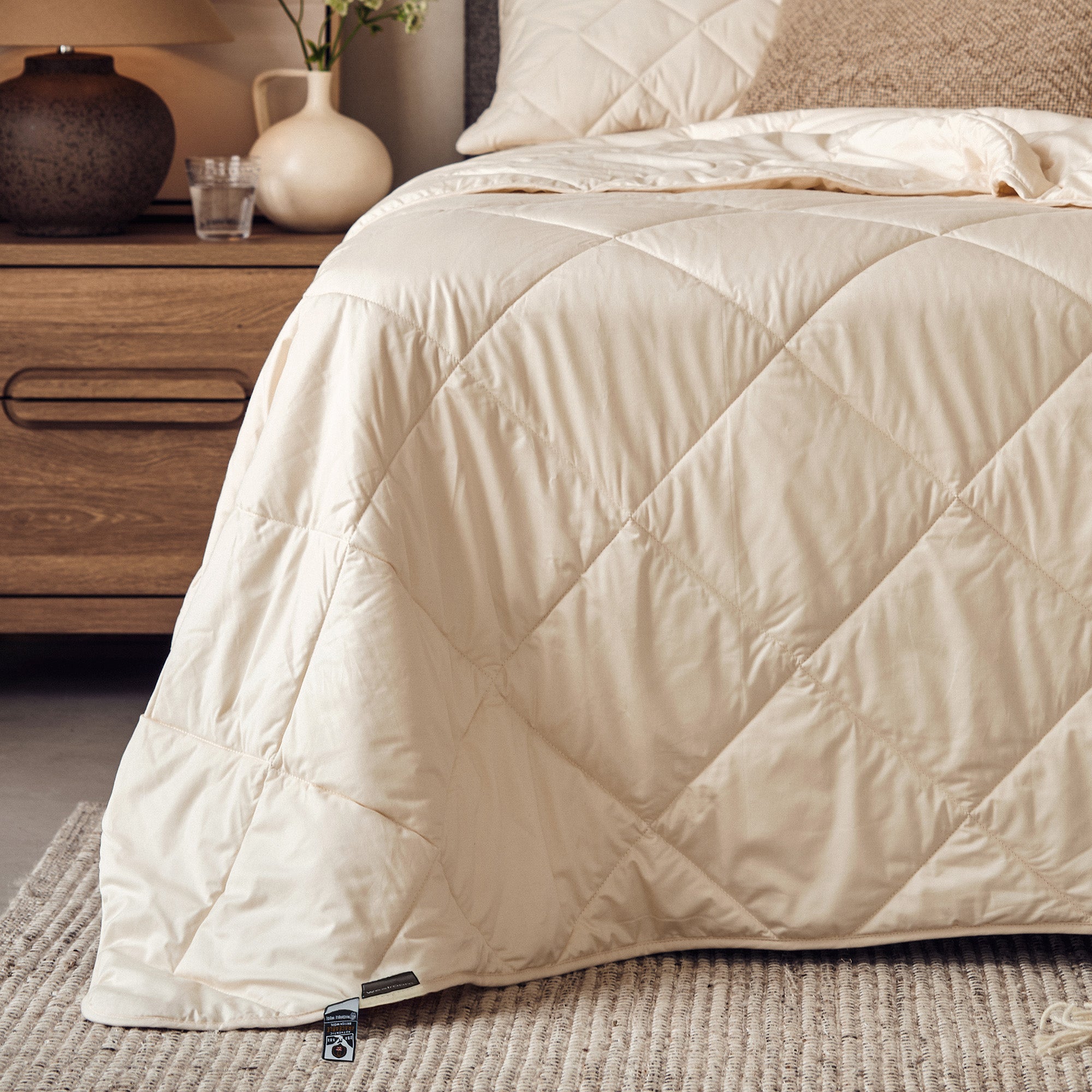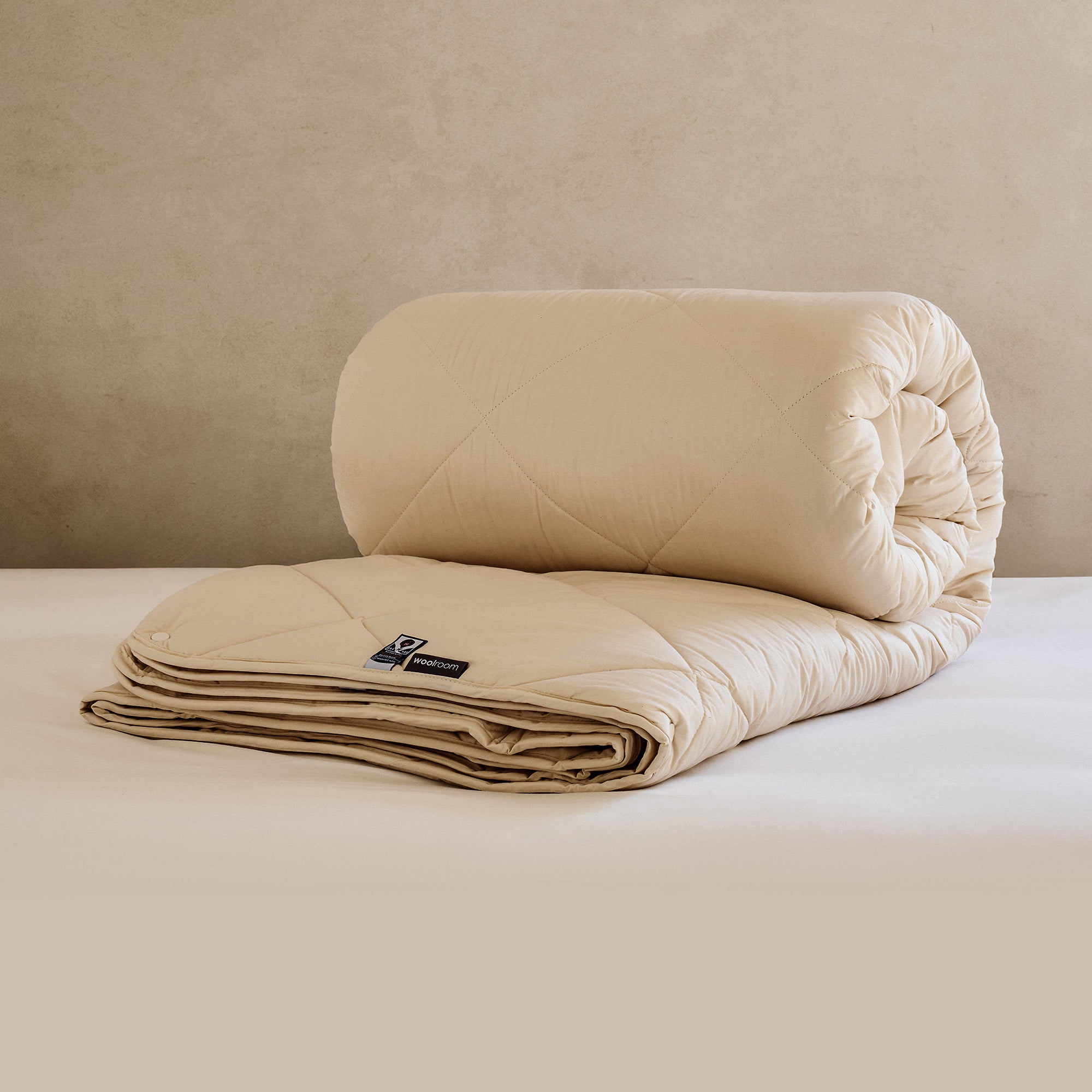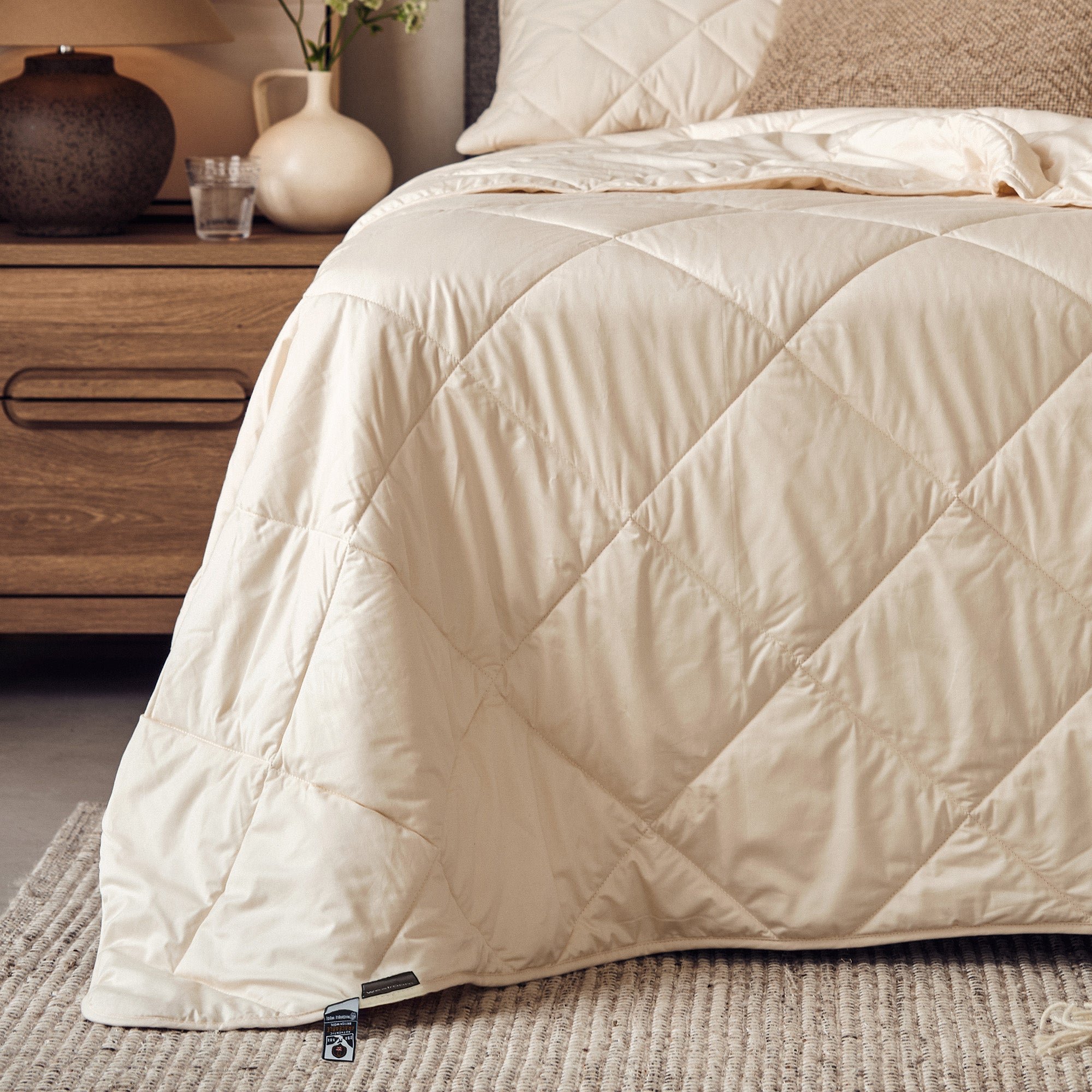Key Takeaways:
-
Hormonal changes drive temperature fluctuations. Falling estrogen levels during menopause can confuse the hypothalamus (your body’s internal thermostat) and causing hot flashes, night sweats, and disrupted sleep
-
Night sweats are more than just overheating. They’re a physiological response that can happen even in a cool room, often triggered by hormonal shifts, stress, diet, or even medicines you're taking.
-
Quality sleep is essential during menopause. Restorative sleep supports hormonal balance, immune function, mood, and bone health.
-
Natural fibers make a real difference. Breathable materials like wool absorb moisture, regulate temperature, and create a comfortable sleep environment that reduces night-time overheating.
-
Your bedroom and sleep setup matters. Choosing temperature-regulating bedding or a wool mattress can help minimize night sweats and promote deeper, more regenerative rest.
-
Small lifestyle tweaks can make a big difference. Keeping your bedroom cool, avoiding caffeine or alcohol before bed, and establishing a calming wind-down routine (cough without screens) all support better sleep quality.
Menopause and night sweats are the ultimate sleep disruptor. Despite menopause being a natural phase of life (that can last intensely for months and come-and-go for up to 7 years), it doesn’t make life easy, especially when it comes to sleep. Night sweats, hot flashes, sore muscles, and disrupted rest can leave you feeling drained before the day even begins.
At Woolroom, we believe sleep should be restorative, not a nightly battle. That’s why we’re here to help you understand why and how menopause affects sleep, what’s happening in your body, and what you can do to feel more comfortable, naturally.
How Does Menopause Impact Sleep?
Approximately 75% of women experience hot flashes and night sweats during menopause, making them among the most common symptoms during this phase of life for women.
These episodes are linked to declining estrogen levels, which disrupt the hypothalamic thermoregulatory center, leading to sudden sensations of heat, sweating, palpitations, and anxiety. Such symptoms can significantly interfere with sleep and daily functioning.
6 Common Symptoms of Menopause That Disrupt Sleep:
Night sweats are one of the most common complaint of when it comes to trying to sleep during menopause. This type of sweating is more than just a warm bedroom or a heavy duvet.
But there are others that play a role in keeping you up at night...
- Hot flashes (hot flushes): Sudden temperature spikes can cause overheating making it difficult to fall asleep or stay comfortable through the night.
- Night sweats: Intense sweating disrupts deep sleep and can leave you waking up cold and damp, often several times per night.
- Mood changes: Feelings of anxiety or irritability can make it harder to unwind at bedtime and contribute to insomnia.
- Brain fog: Poor-quality sleep can worsen concentration and memory issues, creating a frustrating cycle of fatigue and mental cloudiness.
- Fatigue: Persistent tiredness from interrupted sleep can lower energy levels during the day and make it even harder to get restorative rest at night.
- Joint and muscle aches: Physical discomfort can make it difficult to find a comfortable sleeping position, especially during the early morning hours.

Opting for a natural, breathable mattress and bedding will help reduce the impact of nighttime overheating on your quality of sleep.
What Causes Night Sweats During Menopause?
Hot flashes and night sweats occur as fluctuating estrogen levels affect the hypothalamus — the part of the brain that helps regulate body temperature. When hormone levels change, the hypothalamus can mistakenly sense that the body is overheating and triggers a cooling response. This includes widening blood vessels to release heat and activating sweat glands to cool the skin.
These temperature changes can happen at any time, but they often feel more disruptive at night. Many women wake feeling clammy, chilled, and with a racing heart, making it difficult to get back to sleep.
While these symptoms are a normal part of menopause, small adjustments can make a big difference. Creating a cooler sleep environment, wearing breathable natural fabrics, and choosing temperature-regulating bedding — such as a wool mattress
— can all help reduce overheating and promote more consistent, restorative rest.
The body’s natural cooling system kicks into overdrive, leaving you damp, restless, and searching for a cool spot on the pillow. Over time, this broken sleep cycle can impact your physical and mental wellbeing.
5 Natural Ways to Sleep Better During Menopause
Quality sleep supports hormonal regulation, immune function, mood, memory, and even bone health, all of which are vital during menopause. Which is why it's so important to address your sleep habits, bedding, and routine. Reducing night-time discomfort is about more than just rest. It’s about feeling like yourself again.
Way #1 - Choose Breathable Bedding
Your bedding plays a crucial role in temperature regulation. Wool is a natural fiber that’s both breathable and moisture-wicking. Unlike synthetic fibers or even cotton, wool can:
- Absorb up to 30% of its weight in moisture without feeling damp
- Regulate temperature throughout the night
- Create a cool, dry microclimate close to your skin
That means fewer wakeups and more consistent comfort. For more science on wool's breathable traits, read our blog Stay Cool with Wool Bedding: Breathable and Comfortable.
Way #2 - Keep Your Bedroom Cool
Aim for a room temperature between 65-67°F or 16–18°C. Open a window, use a fan, or keep blinds closed during the day to prevent heat build-up.
Way #3 - Avoid Triggers Before Bed
Reduce your intake of spicy foods, caffeine, and alcohol, especially in the evening. These can all worsen hot flushes and disrupt your body’s cooling system.
Way #4 - Establish a Wind-Down Routine
A calming bedtime routine helps signal to your body that it’s time to rest. Try:
- Light stretching or yoga
- Deep breathing or meditation
- Reading or journaling
Way #5 - Consider What You Wear
Loose-fitting, natural fiber sleepwear (like cotton or bamboo) is better at wicking moisture and keeping you cool.
Read real women's testimonials about how wool bedding helped keep them cool during their hottest nights of menopause.
Woolroom's Mission: It’s Time to Talk About Menopause
We launched our #HotWomenOnly social tag to shine a light on this often-overlooked topic and break the stigma around menopause and sleep. With voices like Davina McCall helping to push menopause into mainstream conversation, it's time we talk openly and support each other, not just with science, but with solutions that work.
You’re not alone in this. And you don’t have to suffer through sleepless nights in silence. If night sweats and disrupted sleep are becoming the norm, it might be time to look at what solutions you can start to put into place.
At Woolroom, we specialize in bedding made from 100% British wool. Naturally hypoallergenic, temperature-regulating, and free from synthetic nasties, our bedding is designed to work with your body - not against it.
For more sleep tips, lifestyle topics, and resources, visit the Woolroom Learning Center. And explore our Wool Bedding Collection and start sleeping better, naturally.

